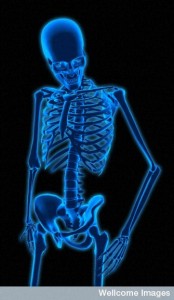
You might be starting to think about which subjects you want to study at school, perhaps you have even had a talk about careers.
One thing that is quite tricky to assess is what a job is REALLY like. Some jobs are quite easy to imagine, such as working as a teacher, because we see the work that teachers do every day. Some jobs are a bit of a mystery. What does an engineer actually DO? And what do you have to study, to become one?
Today we are introducing a new series of articles, which will show you the typical working life of people in many different professions. If you know someone who has an interesting or unusual career, ask them if they would agree to a short interview with us to show kids a day in their life.
We were lucky enough to interview Tasha Scott, who was happy to explain to us her studies and career as a Structural Engineer.
Can you explain what your job is, using a few examples of the type of projects a structural engineer might work on?
My job involves designing structures – for me primarily buildings. These could be buildings of any type, from high-rise residential towers, hotels and shopping centres through to airports, hospitals and schools.
Most buildings are designed using steel, concrete, or a mixture of the two. There are codes that we have to make sure we design to so that the buildings will stand up and be safe.
What kind of engineering do you currently do? Are there various specialities, and how do you decide which is the right one for you?
I currently work as a structural engineer on buildings. Civil engineers are quite similar and design things like roads, railways and bridges.
At university I spent my first two years studying many types of engineering, including structural, civil, aerospace (planes), mechanical and electrical. I decided to carry on and specialise in structural engineering as it was my favourite of them all.
Why did you want to become an engineer?
At both primary and secondary school I really enjoyed maths, science and art. These subjects naturally lead on to a career in engineering, as you get to use your math skills to ensure creative designs will work.
What qualifications were necessary, and was it difficult to a) get into Uni and b) get a job when you were qualified?
Most people who do engineering do some sort of engineering degree. To get into uni to study engineering you generally need A-levels in maths and physics. There are a wide variety of engineering courses at almost every university, so it wasn’t too difficult to find a place at a uni I really liked.
Even in the current climate, engineers, particularly young keen ones, are sought after. As long as you get some good work experience in a gap year or at uni and are able to show how keen and motivated you are about the construction industry, getting a job afterwards should be fine.
Were there many women on your course, and did you find it difficult/intimidating to work in a male dominated environment?
Twenty percent of the people on my course were female, which is fairly typical of an engineering course. I didn’t really notice the working environment being any different to normal either at uni or in my job. I had a lot of male friends on my course at uni, but made lots of other friends through clubs, activities and sports, so it all balances out.
What are the most challenging and rewarding parts of your job?
The best part of my job is seeing something I’ve designed become a reality.
Sometimes it’s difficult to make sure a design suits everyone who is involved, such as the client, architect and builders – but when you find a solution that works for everyone it is extremely satisfying.
Why should a teen (boy or girl) look at engineering as a possible career choice?
I’d recommend engineering as a great career choice as there are so many opportunities. With all the different types there are lots of areas you can work in with some basic technical skills. You can also choose whether you want to work in an office, on site or a mixture of the two. No two weeks are the same and there’s always plenty going on to keep you busy.
If you like any of art, design, maths or physics, I’d definitely suggest you consider engineering!
Title Photography: Clifton suspension bridge, Pil 2009
Laura Kiora 2006





Great series! Can I nominate some other interviewees for this series? Women who are friends and relatives, who work in the professions (Marketing, Finance, HR).
Thanks for the suggestions, Sara. We are going to expand this and include a lot of other professions.